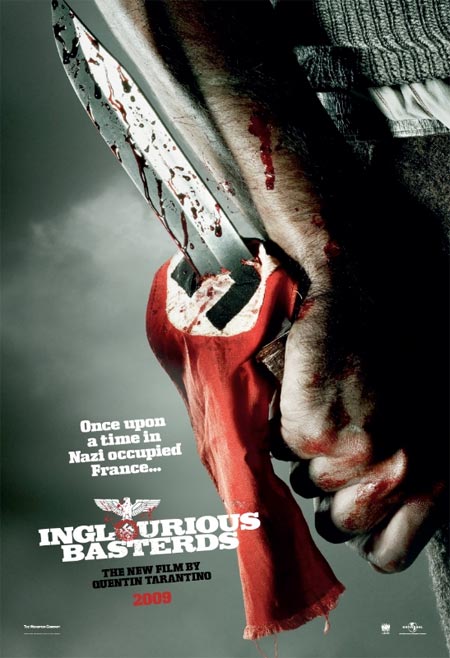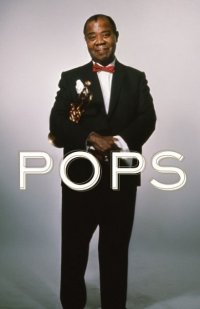“She is a person with many friends and many internal and moral and intellectual resources, yet she confesses in the most disarming–and helpful–manner how much the Internet came to her aid, first when her son was killed and second when she discovered that a term had been set on her own life. The importance of this medium in bringing about a great unspoken social reform–the abolition of loneliness–has not to my knowledge been better evoked.”
Christopher Hitchens, “The Pain of Elizabeth Edwards” (The Atlantic, September 2009)
Archives for September 2009
TT: Seeing Shakespeare plain
In today’s Wall Street Journal drama column I report on my recent visit to Spring Green, Wisconsin, where I saw American Players Theatre perform Henry V and The Winter’s Tale. Both productions were exceptionally fine. Here’s an excerpt.
* * *
APT is a major classical repertory theater lightly disguised as an outdoor summer festival, and it has grown even more important with the opening of a 200-seat indoor house located a few steps away from the 1,148-seat hilltop amphitheatre in which the company has been performing since 1979. For all the attention being paid to the new Touchstone Theatre–about which I’ll have more to say next week–the Up-the-Hill Theatre remains APT’s base of operations, and the productions of “Henry V” and “The Winter’s Tale” that I saw there last week are models of their kind, played on near-bare stages with a bracing vigor that makes you wonder why anybody would think of performing Shakespeare any other way.
I last saw “Henry V” in Central Park six summers ago in a production by Mark Wing-Davey that sought with limited success to transform Shakespeare’s gripping portrait of the battle of Agincourt and its aftermath into an over-the-top-and-down-with-Bush pacifist comedy. Not so APT’s version, staged with dashing directness by James Bohnen, the artistic director of Chicago’s Remy Bumppo Theatre….
Robert Morgan’s Edwardian-style costumes for “The Winter’s Tale” are more ambitious than the ones designed by Fabio Toblini for “Henry V,” but the overall approach of the production, staged by David Frank, APT’s artistic director, is very much in the company’s house style: The cast is mostly young, the staging spare and pointed, the poetry central at all times to the total effect….
“Arguably, this is the leading classical theater in the Midwest,” says Chris Jones, my opposite number at the Chicago Tribune. I’d put it another way: American Players Theatre is to the Midwest what Shakespeare & Company is to New England, a troupe that sets high artistic standards and maintains them with effortless consistency.
* * *
Read the whole thing here.
TT: The war that never ends
 Quentin Tarantino has gone and made himself a war movie–and it looks like Inglourious Basterds is going to be a hit, judging by the first two weeks’ worth of box-office receipts. So why did the creator of Pulp Fiction choose World War II as his subject? For that matter, why is anybody still making World War II movies sixty-four years after V-J Day? What is it about the Good War that continues to set it apart from all other wars in the eyes of Hollywood? I’ve taken a shot at answering that question in my latest “Sightings” column for tomorrow’s Wall Street Journal.
Quentin Tarantino has gone and made himself a war movie–and it looks like Inglourious Basterds is going to be a hit, judging by the first two weeks’ worth of box-office receipts. So why did the creator of Pulp Fiction choose World War II as his subject? For that matter, why is anybody still making World War II movies sixty-four years after V-J Day? What is it about the Good War that continues to set it apart from all other wars in the eyes of Hollywood? I’ve taken a shot at answering that question in my latest “Sightings” column for tomorrow’s Wall Street Journal.
To be sure, Tarantino swears that Inglourious Basterds is really “a spaghetti western, but using World War II iconography as opposed to cowboy iconography.” Maybe that’s true–and maybe there’s more to that distinctive iconography than meets the eye. To find out what makes World War II so cinematically special, pick up a copy of Saturday’s Journal and see what I have to say.
UPDATE: Read the whole thing here.
TT: Almanac
“Mass movements can rise and spread without belief in a God, but never without belief in a devil.”
Eric Hoffer, The True Believer
TT: So you want to see a show?
Here’s my list of recommended Broadway, off-Broadway, and out-of-town shows, updated weekly. In all cases, I gave these shows favorable reviews (if sometimes qualifiedly so) in The Wall Street Journal when they opened. For more information, click on the title.
Warning: Broadway shows marked with an asterisk were sold out, or nearly so, last week.
BROADWAY:
• Alfred Hitchcock’s The 39 Steps (comedy, G, suitable for bright children, reviewed here)
• South Pacific * (musical, G/PG-13, some sexual content, brilliantly staged but unsuitable for viewers acutely allergic to preachiness, reviewed here)
OFF BROADWAY:
• The Fantasticks (musical, G, suitable for children capable of enjoying a love story, reviewed here)
• Our Town (drama, G, suitable for mature children, reviewed here)
IN ASHLAND, OREGON:
• The Music Man (musical, G, very child-friendly, closes Nov. 1, reviewed here)
IN CHICAGO:
• The History Boys (drama, PG-13/R, adult subject matter, too intellectually complex for most adolescents, extended through Oct. 18, reviewed here)
IN STRATFORD, ONTARIO:
• The Importance of Being Earnest (comedy, G, closes Oct. 30, reviewed here)
• Three Sisters (drama, PG-13, closes Oct 3, reviewed here)
IN TOPANGA, CALIF.:
• The Cherry Orchard (drama, PG-13, adult subject matter, closes Sept. 26, reviewed here)
CLOSING SOON IN EAST HADDAM, CONN.:
• Camelot (musical, G, closes Sept. 19, reviewed here)
CLOSING NEXT WEEK ON BROADWAY
• Avenue Q * (musical, R, adult subject matter and one show-stopping scene of puppet-on-puppet sex, closes Sept. 13, reviewed here)
CLOSING SATURDAY IN LENOX, MASS:
• Twelfth Night (Shakespeare, PG-13, reviewed here)
CLOSING SUNDAY IN GARRISON, N.Y.:
• Pericles and Much Ado About Nothing (Shakespeare, PG-13, playing in repertory, reviewed here)
CLOSING SUNDAY OFF BROADWAY
• Ruined (drama, PG-13/R, sexual content and suggestions of extreme violence, reviewed here)
TT: Almanac
“I lack what the English call character, by which they mean the power to refrain.”
Alan Bennett, An Englishman Abroad
TT: A second star in the sky
 Pops: A Life of Louis Armstrong, out December 2, just received a starred pre-publication rave from Kirkus Reviews:
Pops: A Life of Louis Armstrong, out December 2, just received a starred pre-publication rave from Kirkus Reviews:
A comprehensive, affectionate biography of arguably the single most important figure in the history of jazz.
The broad outlines of the story are well known to jazz fans….Former professional jazz musician and Wall Street Journal drama critic Teachout (All in the Dances: A Brief Life of George Balanchine, 2004, etc.) fills in the details with a sure hand, drawing on numerous published sources as well as voluminous tape recordings and autobiographical writings left by Armstrong, many not available to earlier writers. The author sheds light on the embouchure problems that temporarily derailed Armstrong’s career, and dictated a change of style, in the early ’30s. He sympathetically re-evaluates Armstrong’s later career, which many critics have dismissed as elevating showmanship above art, demonstrating that the trumpeter was much more than the unschooled natural genius some admirers saw in him. Without overloading the reader with technical details, Teachout shows how Armstrong’s music evolved over the years, while staying true to lessons learned–above all, attention to melody–from his New Orleans mentors such as Oliver. Quotes from Armstrong’s earthy autobiographical writings give the book authentic flavor. Teachout also deals frankly with Armstrong’s lifelong marijuana use, the role of organized crime in his business affairs, his untidy marital life and his forthright statements on racial issues. The author makes an eloquent case for Armstrong’s status as a pioneer, not just in jazz but in the broader context of 20th-century art.
A rewarding jazz biography and a revealing look at a broad swath of American cultural history.
This goes very nicely with the equally enthusiastic starred review of Pops that appeared last month in Publishers Weekly.
We seem to be off to a good start….
CAAF: I’m smelting! I’m smelting!
Books I bought simply because the title amused me, no. 43: The Complete Idiot’s Guide to Alchemy.
Related: If you have any lead pencils or jars of old pennies lying around, I’d be ever so grateful if you could send them along.
